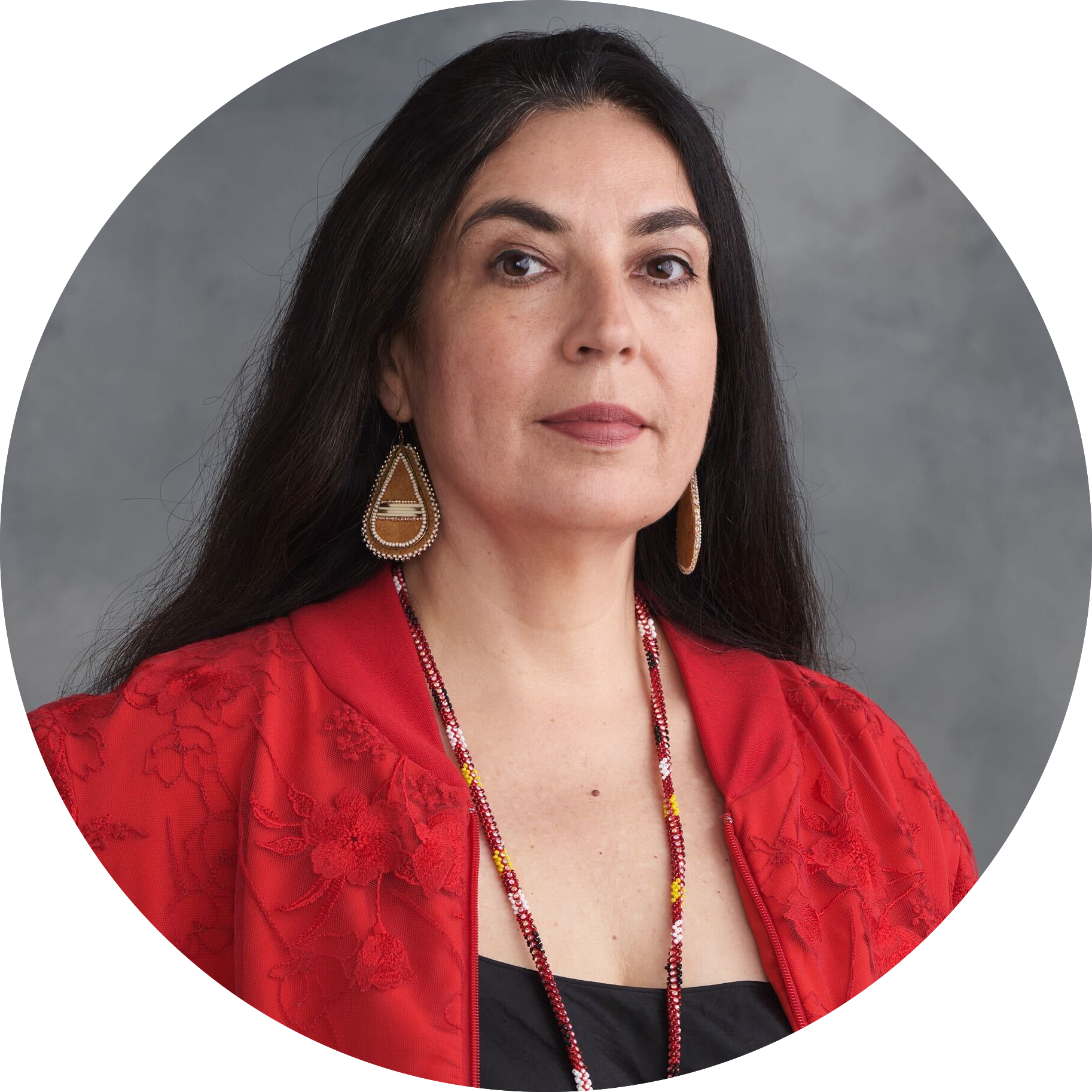
The root of the problem in northern Ontario
This story about a lawsuit involving First Nations in northern Ontario has deep roots — in...
A lack of federal funding is driving away highly qualified Canadian climate scientists and the vast majority of remaining scientists rely on resources from other countries for their research, according to a report released Wednesday by two non-profit groups.
The report comes less than three months after a scientific study revealed Canada is warming twice as fast as the global average and follows calamitous spring floods in Atlantic Canada and drought and forest fires in the west.
“Canadians are already being affected by climate change,” said Katie Gibbs, executive director of Evidence for Democracy, which co-authored the report.
“Without continued research … decision-makers will be unable to make informed decisions about any aspect of climate policy.”
The 30-page report examines the state of funding for climate science in Canada based on a survey of scientists in the field.
It concludes that vital work in the atmospheric sciences is being neglected even though funding has increased for climate-related research in ecology and other fields.
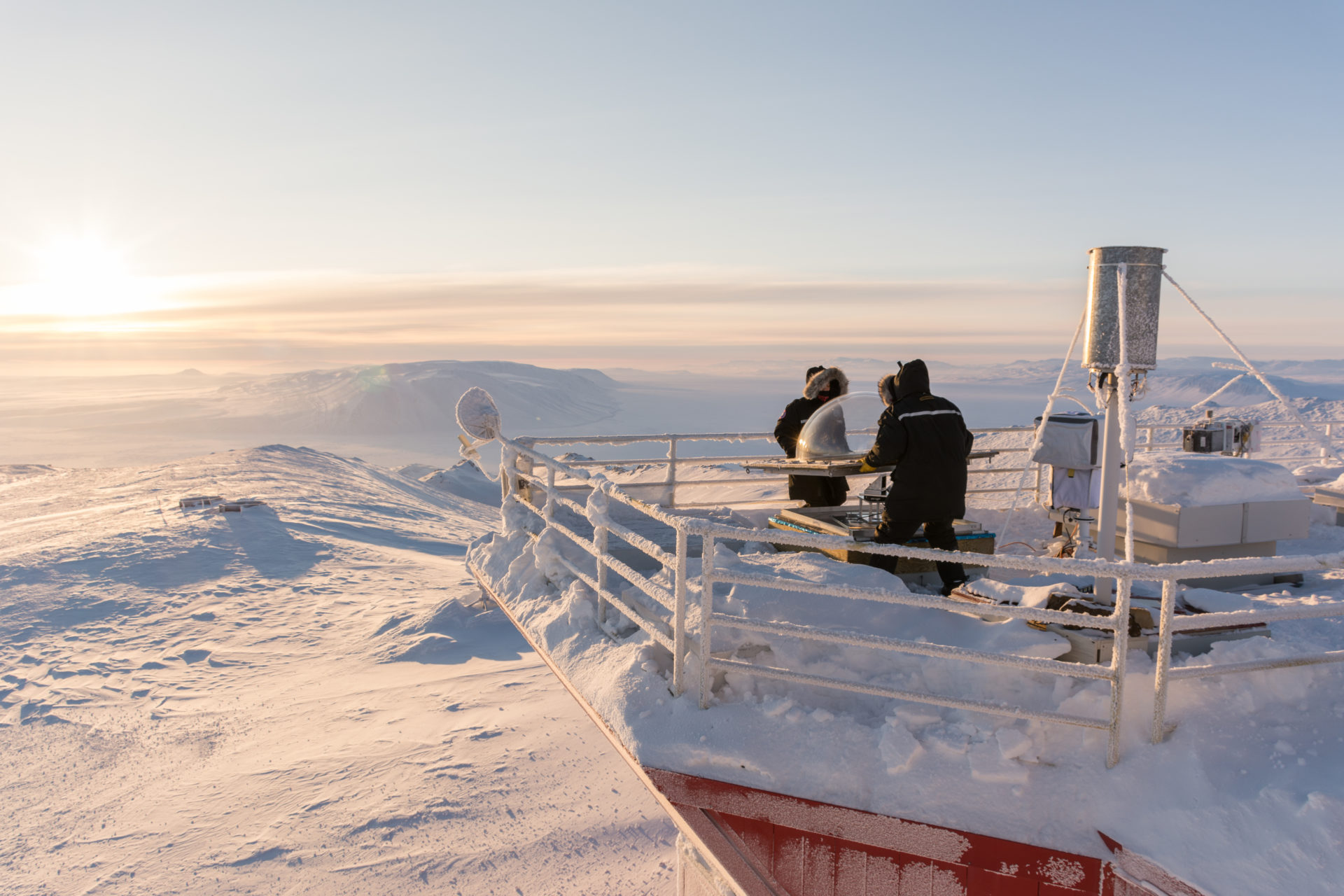
Scientists at the Polar Environment Atmospheric Research Laboratory in Nunavut. Photo: Dan Weaver
Climate scientist Dan Weaver said there is a consequent “bleed of expertise” from Canada.
“If we train people and then cut out the funding they’re going to go to other places, because they’re valued in Europe and Japan and the United States,” Weaver told The Narwhal.
“We’ve got to compete for talent and right now we’re not keeping the talent we have.”
The report zooms in on the fate of Canada’s climate change and atmospheric research program. Established in 2000, the program received $110 million from the government to invest in university-based research in climate and atmospheric sciences.
Since funding for the program ended last year, Canada has lacked a dedicated funding stream for climate science, Weaver said. Among other research, the program focused on the changing Arctic ocean, changes in sea ice and snow (primarily in the Arctic) and weather processes.
“All of these topics are linked together into the big question of how Canada’s climate is changing,” said Weaver, a board member for Evidence for Democracy
, which promotes the transparent use of evidence in government decision-making in Canada.
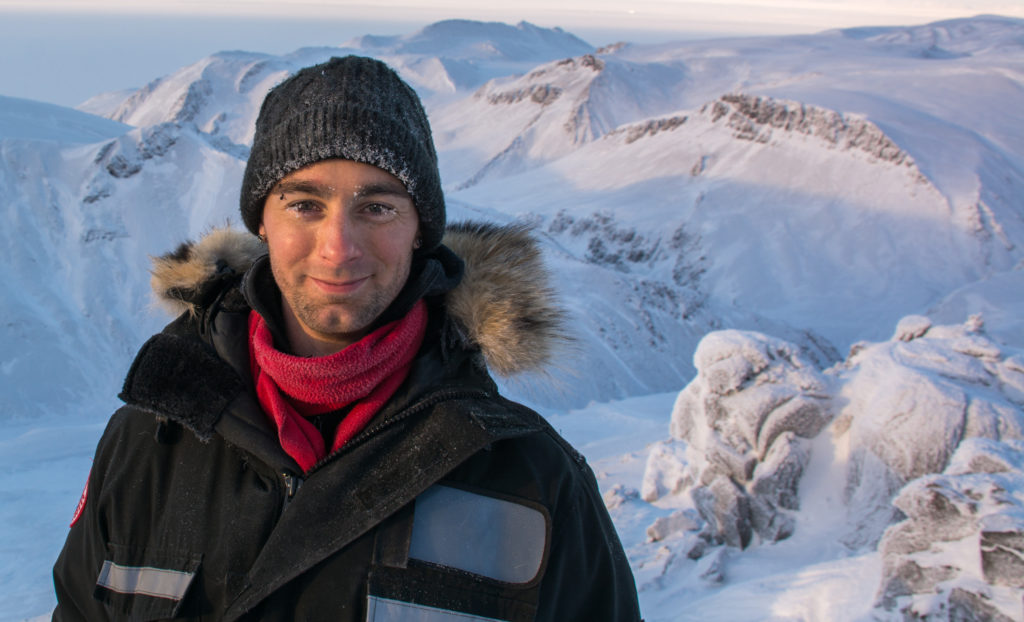
Climate scientist Dan Weaver says there is a “bleed of expertise” from Canada due to a lack of funding.
The federal government funds work on climate education, mitigation and adaptation, Weaver noted.
“But we are lacking a key piece of the puzzle — and that is a comprehensive, long-term approach to climate change science and the Arctic.”
The loss of funding will negatively affect international atmospheric data sets and projects that depend on Canadian researchers’ work, says the report, co-authored by the Canadian Climate Forum, which focuses on using evidence-based climate knowledge in decision-making.
“It also means the loss of the skills, expertise and productivity of hundreds of climate science trainees, which the country has invested in over the decades.”
Almost 75 per cent of scientists surveyed reported that highly qualified personnel have left the field.
The significant costs of infrastructure — such as icebreakers, satellites or Arctic research laboratories — can distort funding trends, the report warns, “giving the appearance of significant investments in fundamental science and scientists.”
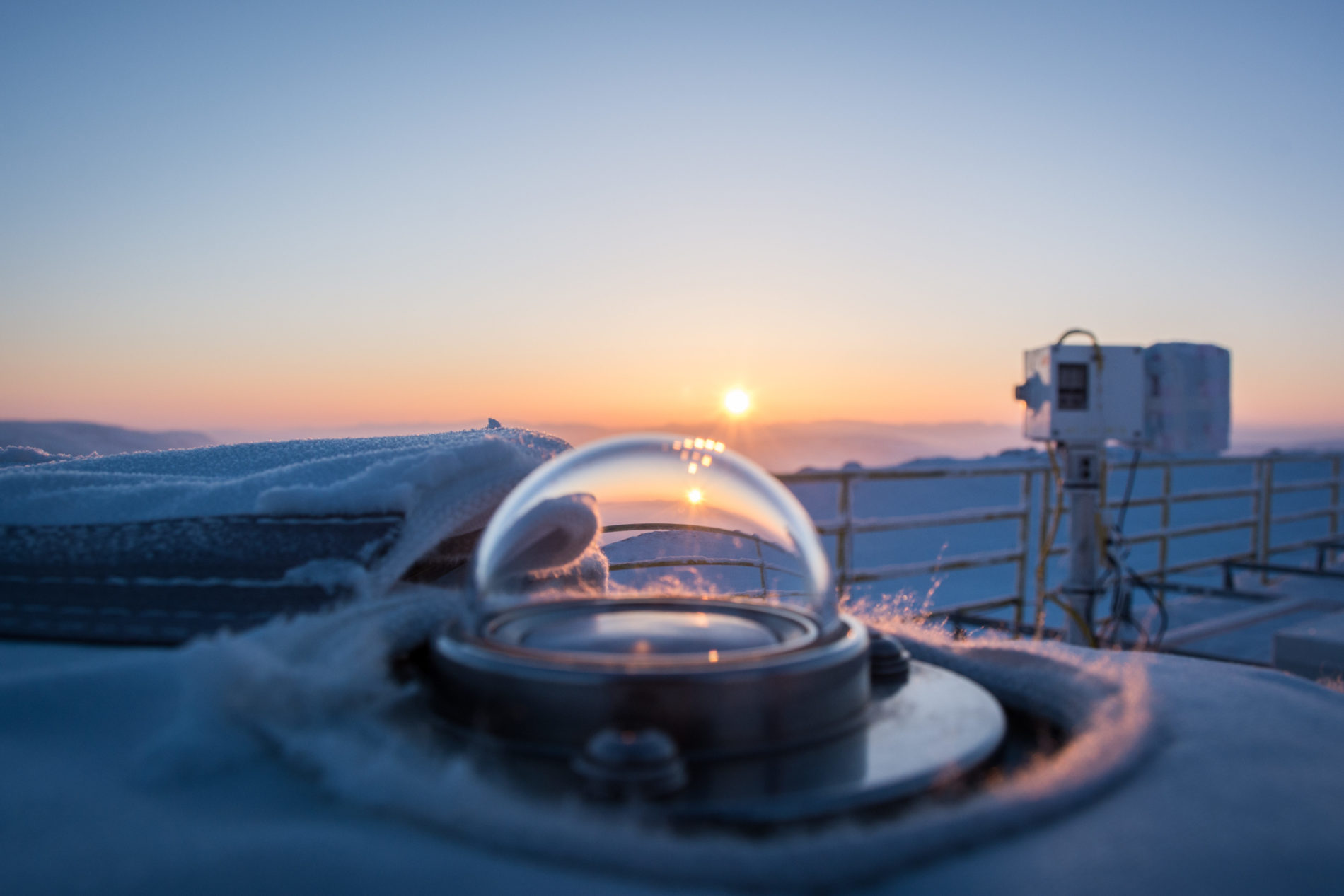
The dome of a Brewer spectrophotometer, a Canadian-designed instrument used to measure atmospheric ozone using observations of UV light. They are deployed world-wide to monitor the ozone layer, as well as sulfur dioxide and nitrogen dioxide. Photo: Dan Weaver
Climate scientists rely heavily on government-funded infrastructure, the study notes.
Yet a “flagship” Canadian satellite for measuring atmospheric gases and ozone is now 14 years past its planned lifetime and planned science experiments on the 40-year-old CCGS Amundsen — an icebreaker and Arctic research vessel operated by the Canadian Coast Guard — have been cancelled due to a general lack of icebreakers.
Canada has historically been a leader in satellite technology, measurements and communications, Weaver pointed out.
“We’re really not continuing that proud history.”
Once the satellite is no longer in operation, Weaver said “we lose our only dedicated Canadian science satellite — and that’s really a failure in long-term planning and investment in the infrastructure that we need to do atmospheric science and climate science in this country.”
Without a science satellite Canada will lose even more climate science expertise, he predicted.
“If the satellite stops we’re going to have all these experts in remote sensing and they’re going to go off and work for the Europeans or the Americans or somebody else and it will be very hard for us to decide to get back in the game.”
The survey shows 94 per cent of Canadian climate scientists depend on international support, in the form of satellites, aircraft and ships.
More than 60 per cent of scientists surveyed said “foreign resources” were extremely or very important for their work, while only six per cent did not rely on any foreign resources.
Weaver said Canadian scientists ask their own questions and have their own priorities.
“These are not always going to be identical to those of other countries. . . We can’t just take everyone else’s models, take everyone else’s satellite data and that will give us everything we need. We need to be a participant, actively, to make sure our part of the story is in there.”
The report says Canada is in an “exceptional position” to be a leader in Arctic science and in global climate, atmospheric and ozone research, noting that Canadian climate scientists have pioneered research in atmospheric sciences, meteorology and oceanography.
In 1976, Montreal’s Canadian Meteorological Centre launched the world’s first operational global computer weather-modelling system, the report points out.
“Reducing our capacity for climate science research in northern and Arctic regions not only leaves Canada lacking in knowledge about the changing climate, but also fails to place the North at the forefront of government policy and diminishes the involvement of these areas in cutting-edge science.”
The 2019 federal budget proposes up to $21.8 million over five years to support critical repairs and upgrades at the Eureka Weather Station on Ellesmere Island in Nunavut, the report notes.
Yet the future of the Polar Environment Atmospheric Research Laboratory (PEARL) is uncertain
following the cancellation of the climate change and atmospheric research program.
PEARL has been instrumental in monitoring and conducting research on atmospheric ozone. In 2011, the laboratory observed the largest ozone depletion event ever seen in the Arctic, “an event that may indicate the potential for climate change to compromise the recovery of the ozone layer,” according to the report.
“Canadian climate science requires both investment in infrastructure and in academic research as part of a clear strategy,” the report emphasizes.
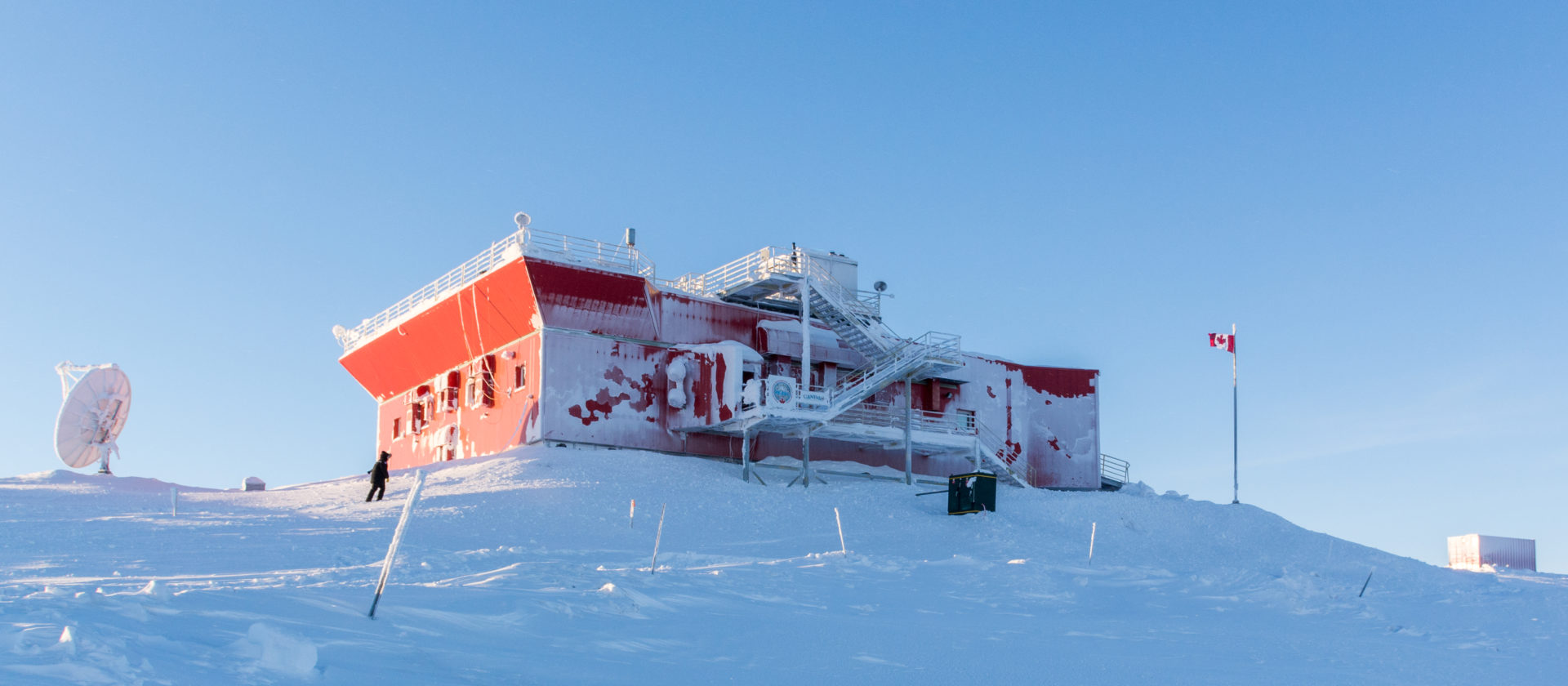
The Polar Environment Atmospheric Research Laboratory (PEARL) is the most northern atmospheric observatory of its kind. The lab hosts dozens of instruments across three main facilities. The ridge lab sits atop a ridge at an altitude of 610 metres, approximately 12 km from Eureka. It was originally built by Environment Canada in the early 1990s as the Arctic Stratospheric Observatory, but its operation was ended in the early 2000s. A group of academics revived the lab in 2005 and re-opened it as PEARL. The data sets produced by PEARL contribute to a variety of global work, including studying the carbon cycle, ozone depletion, water cycle, air pollution and aerosols. Photo: Dan Weaver
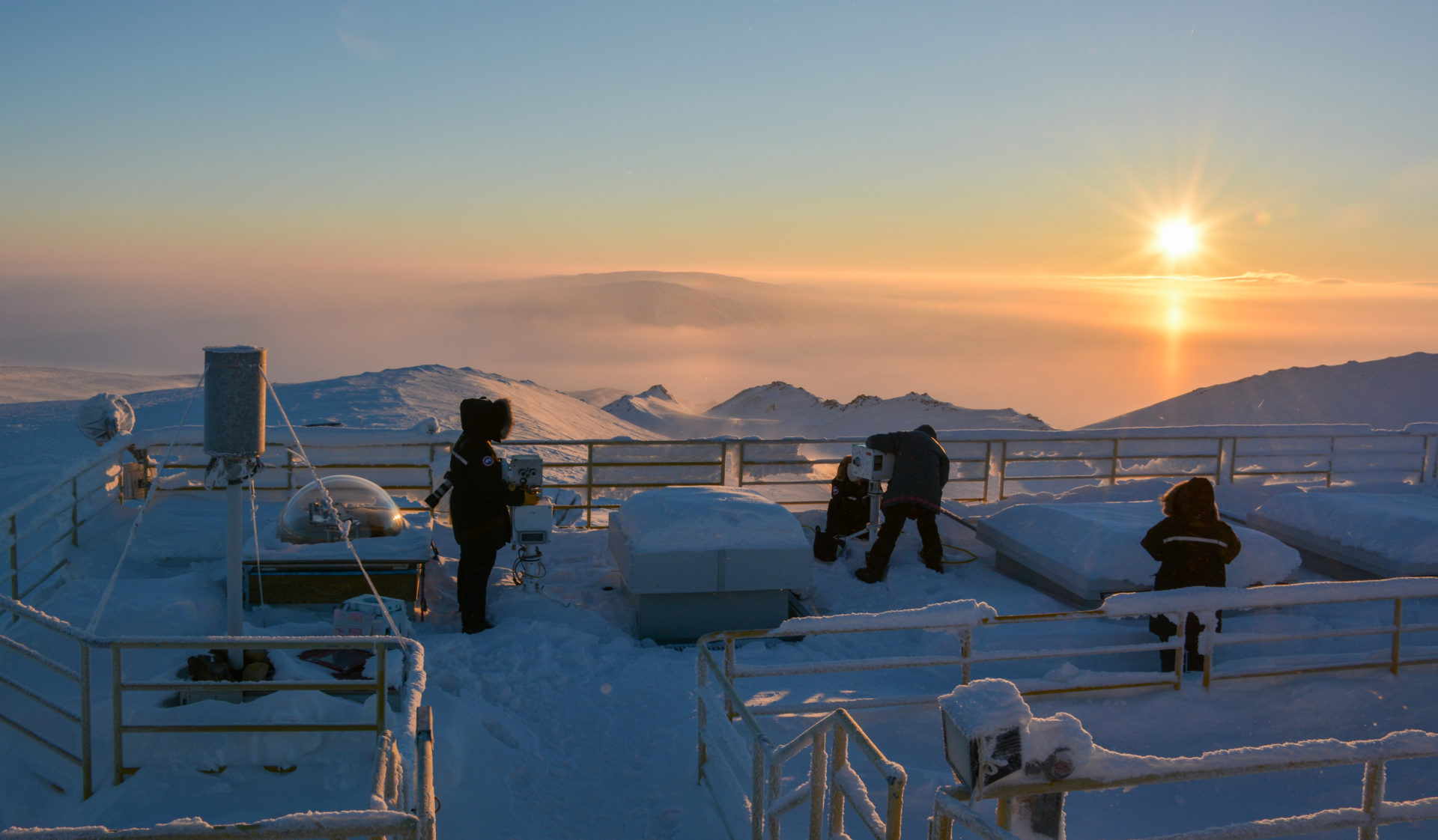
A team of Canadian scientists install instruments on the roof of the Polar Environment Atmospheric Research Laboratory ridge lab. Photo: Andrew Weaver
The report recommends Ottawa establish a climate science funding strategy, develop more monitoring stations and include climate science in long-term plans for icebreakers, research aircraft and satellites.
It also calls for climate scientists to have better access to climate data, potentially by creating a Canadian equivalent of the U.S. National Climatic Data Center.
The report is based on interviews with nine academic climate scientists and survey responses from 84 climate scientists working in higher education, government, non-profit groups or the private sector. More than 80 percent of the respondents worked in higher education while 12 per cent worked for government.
Since scientists who have concerns about their research funding are more likely to respond to the survey, the report acknowledges that respondents’ views may not represent the entire Canadian climate science community.
Content for Apple News or Article only Get the inside scoop on The Narwhal’s environment and climate reporting by signing up for our free newsletter. This...
Continue reading
This story about a lawsuit involving First Nations in northern Ontario has deep roots — in...

At a crucial point in their research, biologists are scrambling to find new support for...

From True Detective to The Grizzlies, the Inuk actor is known for badass roles. She's...
